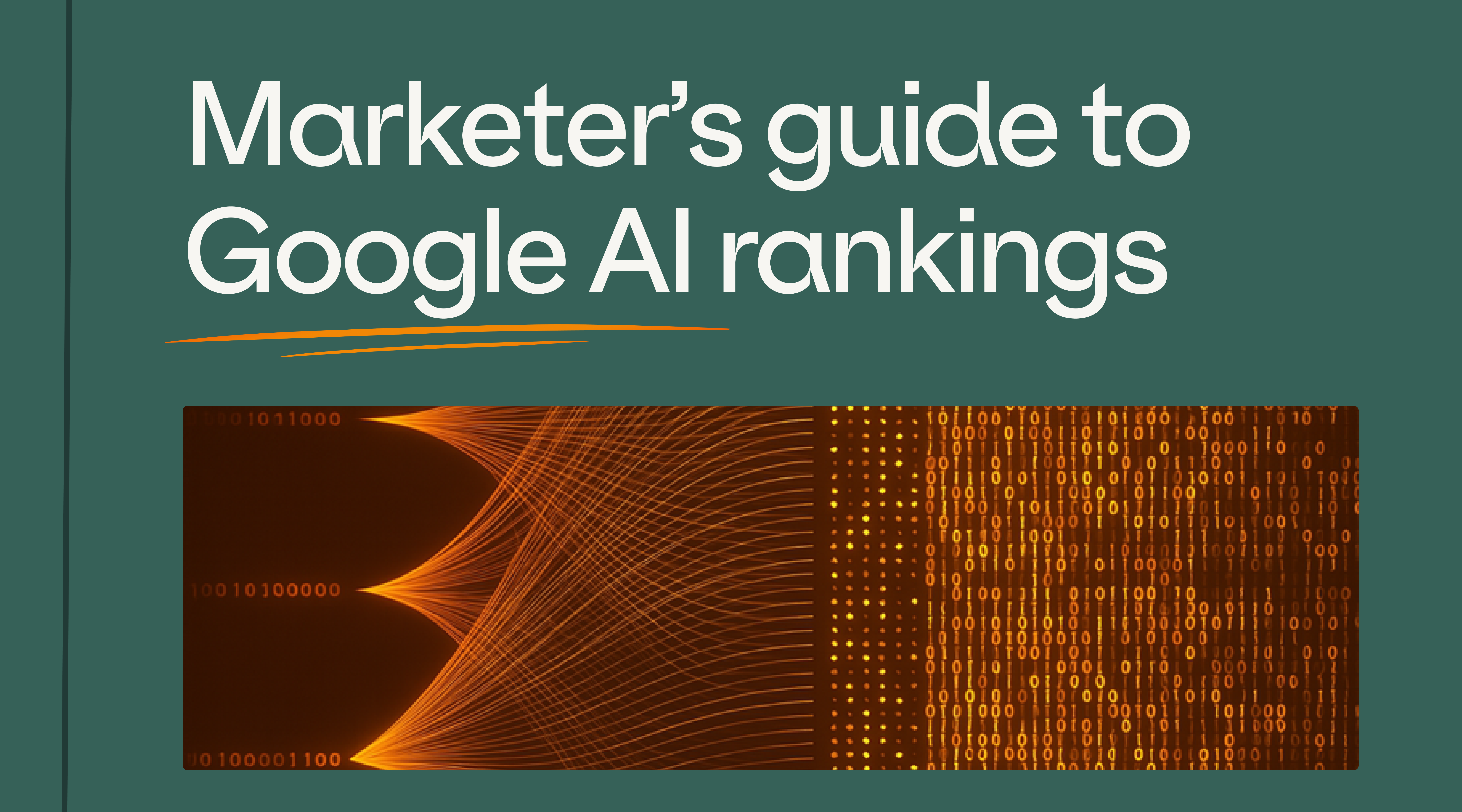Marketer’s guide to Google AI rankings
Transcript
Show Notes
1. Don’t give up on the SEO work you’ve been doing
Google AI pulls content from sites already ranking well, so the basics of SEO are still just as important as before. If your site can’t be found through a traditional Google search, than there is not much you can do to rank well in AI search summaries. Here’s a quick recap of SEO best practices:
Off-page SEO
- Build backlinks from trusted sites in your industry
- Stay active on social media because engagement builds authority
- Do your keyword research
On-page SEO
- Optimize website content for researched keywords
- Use internal links to connect each of the pages on your website
- Optimizing title tags, meta descriptions, and URLs for keywords
- Site speed and mobile optimization
- Use schema markup with tools like Webflow
2. Optimize for AI understanding and visibility
Once your website is ranking on traditional search, we can implement AI specific strategies. Google AI crawlers love well structured and straight to the point content. Here’s how to optimize your website for AI’s liking:
Improve content structure
- Use one H1 per page, followed by H2s and H3s for subtopics
- Break long text into short and concise paragraphs
- Use bullet points, numbered lists, and clear headings to help AI “see” the page layout
- Add FAQ sections with real, keyword-rich questions and short answers
- Make sure all pages are linked together, and the majority can be directed to straight from the homepage
Answer questions directly
- Skip the jargon and keep content clear and relevant
- Put your answer near the top of the page
- Use clear, conversational phrasing like: “Yes, and here’s why…” or “The short answer is…”
- AI favors content that mirrors how users ask questions
Key takeaways:
- SEO is still the foundation: Don’t stop this effort because AI depends on it.
- AI picks structured content: Use clear headings, short paragraphs, bullet points, and FAQs so AI can easily read and summarize your pages.
- Front-load the value: Answer questions directly at the start of the page, then you can follow with the details.
Apply What You’ve Learned
Now that you know what it takes to show up in Google’s AI search, it’s time to make the changes on your website. Focus on the basics. Start by strengthening your SEO foundation, then structure your content so users and AI can understand it easily.
Need help? We work with businesses every day to make their websites work harder for their business. We’ll guide you through each of these important steps and optimize your website to rank in AI search summaries.
Take care,
The WebsiteSquirrel Team
Subscribe to our newsletter
Sign up now for an enlightening of learning, creativity and growth. Don’t miss out!





